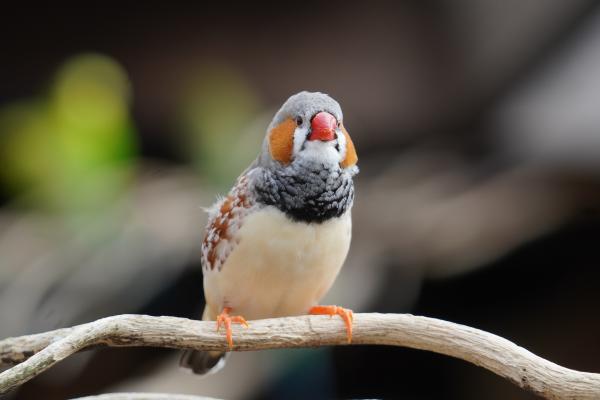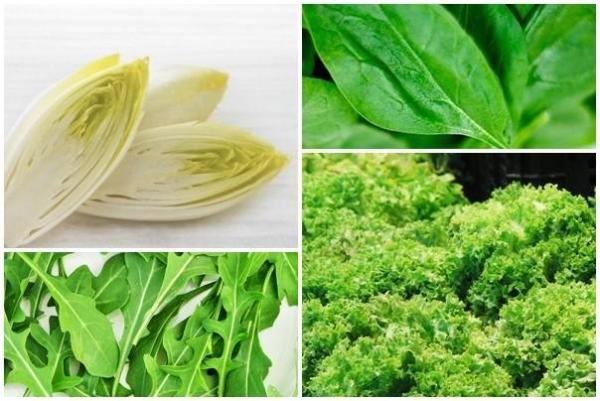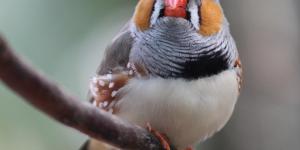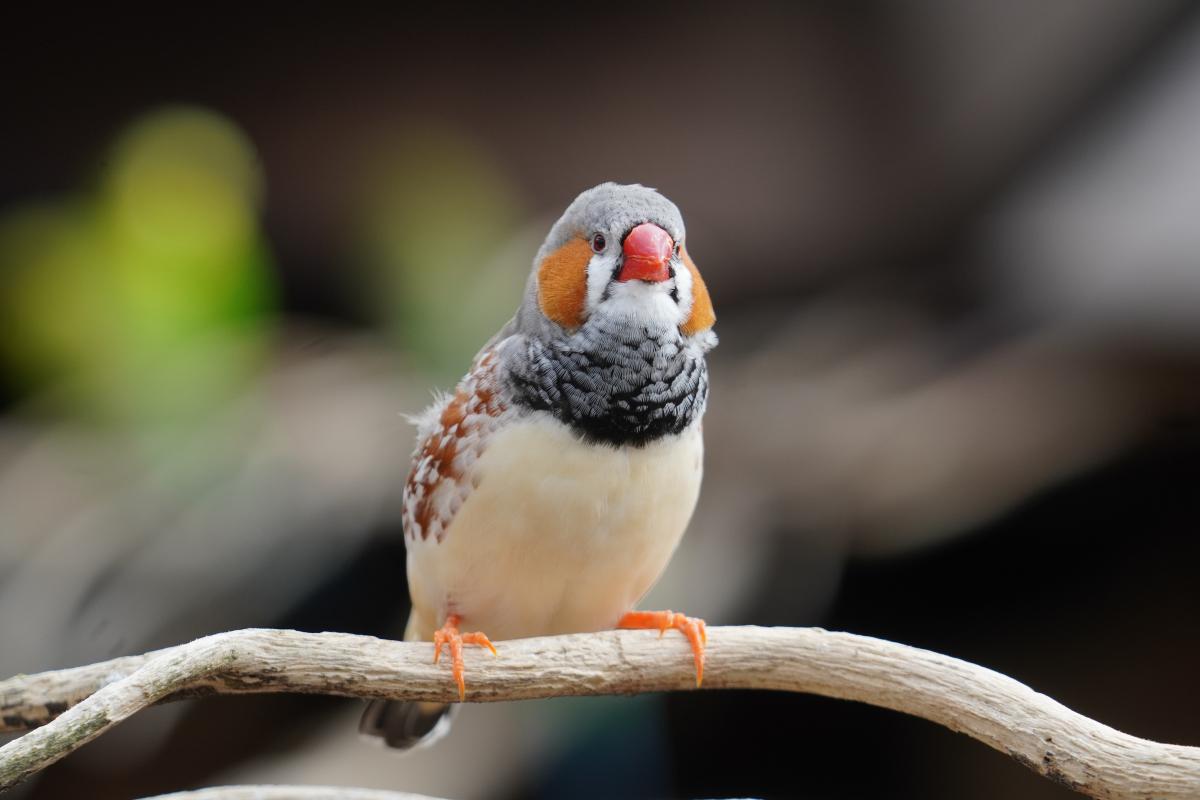Fruits and Vegetables for Zebra Finches


Introducing fruits and vegetables to zebra finches requires patience and thoughtful presentation. It is a process with requires us to gradually incorporate a variety of fruits and vegetables to provide essential vitamins and minerals. Remember that finches have individual preferences, so persistence and rotation are key. Avoid forcing them to eat, but encourage curiosity by mixing small pieces with their regular seed mix. Consulting an avian veterinarian if concerns arise ensures their dietary needs are met. At AnimalWised, we explain in detail the fruits and vegetables for zebra finches.
What do zebra finches eat?
Zebra finches have a diverse diet that consists primarily of seeds in the wild. In captivity, it's important to replicate this natural diet while also providing additional nutrients to ensure their health and vitality. A high-quality finch seed mix serves as the cornerstone of their diet. This mix typically includes various seeds like millet and canary grass seed. Seeds provide essential energy in the form of carbohydrates, but it's important to note that a diet solely based on seeds can lack certain vitamins, minerals and proteins.
To address these nutritional gaps, zebra finches should also be offered fresh vegetables and leafy greens, which supply essential vitamins, minerals, and fiber. Additionally, providing a variety of fresh fruits, like apple or pear slices, offers natural sugars and additional vitamins.
During periods of increased nutritional demand, such as breeding or raising chicks, offering egg food or a soft food mix can supply the extra protein and nutrients required. Calcium is crucial for strong bones and beak health. Learn more with our article on what to do if a budgie has broken their beak.
Ultimately, creating a balanced diet for zebra finches involves offering a variety of foods that cater to their specific nutritional requirements. A well-rounded diet mimics their natural foraging behaviors and ensures they receive the vitamins, minerals and proteins necessary for a healthy life.
Vegetables for zebra finches
Zebra finches can benefit from a variety of vegetables that provide essential vitamins, minerals and fiber. Here are some vegetables that you can offer to your zebra finches as part of their balanced diet:
- Dark leafy greens: spinach, kale, and Swiss chard are excellent choices. These greens are rich in vitamins A, C, and K, as well as minerals like calcium and iron. However, offer them in moderation due to their oxalate content, which can inhibit calcium absorption in large amounts.
- Lettuce: romaine lettuce or other types of leafy lettuce can be given. Iceberg lettuce has little nutritional value, so it's best to opt for more nutrient-dense options.
- Broccoli: broccoli florets provide vitamins C and K, as well as fiber. You can offer small, bite-sized pieces.
- Cucumber: cucumber is hydrating and low in calories. It's a good source of hydration for your finches.
- Bell peppers: bell peppers are rich in vitamin C and can be offered in small, manageable pieces.
- Carrots: grated or thinly sliced carrots are a source of beta-carotene, which can contribute to healthy skin and feathers.
- Zucchini: zucchini is a mild vegetable that can be sliced into small portions for your finches.
- Peas: peas provide protein, fiber, and essential nutrients. Offer fresh or frozen peas, thawed and lightly cooked.
- Corn: fresh, cooked corn kernels without any flavorings can be a treat. They contain carbohydrates and some vitamins.
- Green Beans: fresh, cooked green beans are a source of fiber and some vitamins.

How to give vegetables to zebra finches
Incorporating vegetables into a zebra finch's diet requires a thoughtful approach to ensure they receive the nutritional benefits while maintaining their interest in the new foods. Here's a step-by-step guide on how to give vegetables to zebra finches and incorporate them effectively:
- Choose nutrient-rich vegetables: select a variety of nutrient-dense vegetables that are safe for zebra finches. These can be found in the list above.
- Wash and prepare: thoroughly wash the vegetables to remove any pesticides or contaminants. Chop or slice the vegetables into small, manageable pieces. Finches have small beaks, so make sure the pieces are appropriately sized for them.
- Introduce small portions: begin by introducing a small amount of a single vegetable. Place the vegetable pieces in a separate dish or clip them to the cage bars using bird-safe clips. This prevents the vegetables from getting soiled with droppings and makes them easily accessible.
- Observe interest: watch your zebra finches' reactions to the new vegetables. Some may immediately show interest and start exploring the new food, while others might be more hesitant.
- Offer variety: rotate the types of vegetables you offer regularly to provide a diverse range of nutrients and prevent boredom. Introduce a new vegetable every few days to maintain their curiosity.
- Patience: zebra finches can be cautious about trying new foods. It might take time for them to become accustomed to vegetables. Be patient and persistent in offering them.
- Mix with seed: you can mix small pieces of vegetables with their regular seed mix. This encourages foraging behavior and helps finches associate the vegetables with familiar foods.
- Avoid waste: remove uneaten vegetables after a few hours to prevent spoilage. This also helps you gauge which vegetables are preferred by your finches.
- Observe dietary preferences: pay attention to which vegetables your finches enjoy the most. Offer more of their favorites while still providing a variety.
- Limit oxalate-rich vegetables: while vegetables like spinach and kale are nutritious, they contain oxalates that can inhibit calcium absorption. Offer these in moderation, balancing them with calcium-rich foods.
- Supplemental foods: during times of increased nutritional demand, such as breeding or raising chicks, consider offering an egg food or soft food mix that contains vegetables and other nutrients.
- Fresh water: always provide clean, fresh water alongside the vegetables to keep your finches hydrated.
By following these steps and gradually introducing vegetables, you can successfully incorporate these nutrient-rich foods into your zebra finches' diet. Remember that each bird is unique, so pay attention to their preferences and nutritional needs to ensure their health and wellbeing.
Fruit for zebra finches
Zebra finches can enjoy a variety of fruits as part of their balanced diet. Fruits offer essential vitamins, minerals and natural sugars that can contribute to their overall health. Here are some fruits that are safe and suitable for zebra finches:
- Apples: remove seeds and core, then slice or dice the apple into small pieces. Apples are a good source of dietary fiber and vitamin C.
- Pears: like apples, remove seeds and core before offering sliced or diced pear. Pears provide hydration and natural sugars.
- Berries: blueberries, strawberries, raspberries, and blackberries can be offered occasionally. They are rich in antioxidants and vitamins.
- Melon: watermelon, cantaloupe, and honeydew melon can be given in small, seedless pieces. Melons are hydrating and low in calories.
- Kiwi: remove the skin and seeds, then offer small portions of kiwi. Kiwi is a source of vitamin C and dietary fiber.
- Bananas: peel and slice a small piece of banana. Bananas offer potassium and natural sugars.
- Papaya: remove seeds and skin, then provide small amounts of papaya. Papaya contains enzymes that aid digestion.
- Grapes: cut grapes into halves or quarters to prevent choking hazards. Grapes are a good source of hydration and antioxidants.
- Oranges: offer small pieces of orange without seeds. Oranges are a source of vitamin C but should be given in moderation due to their acidity.
- Mango: remove the skin and seed, then offer small, soft pieces of mango. Mango provides vitamins A and C.
How to give fruit to zebra finches
To incorporate fruits into a zebra finch's diet, follow a similar approach as with vegetables. Begin by introducing small portions of safe fruits, such as apples, pears, berries, melon and more. Ensure the fruits are washed, peeled and seeds or pits are removed to prevent choking hazards. Slice or dice the fruits into small, manageable pieces that your finches can easily handle.
Place the fruit pieces in a separate dish or use bird-safe clips to attach them to the cage bars. Observe your zebra finch's reaction to the new foods and be patient if they're initially hesitant.
Rotate the types of fruits you offer to provide variety and a balanced nutritional intake. Monitor their preferences and adjust the portions accordingly. Remember that fruits should be given as treats and not constitute the majority of their diet.
Just like with vegetables, remove any uneaten fruit after a few hours to prevent spoilage. Fresh water should always be available alongside the fruits to keep your finches hydrated.
Incorporating both vegetables and fruits into your zebra finches' diet ensures they receive a diverse range of nutrients that support their overall health and wellbeing.
Fruit and vegetables zebra finches need to avoid
While zebra finches can enjoy a variety of fruits and vegetables, there are certain ones they should avoid due to potential health risks. Here are some fruits and vegetables that are best avoided in a zebra finch's diet:
Fruits Zebra finches should avoid
- Avocado: avocado contains a substance called persin, which can be toxic to birds and lead to serious health issues.
- Citrus fruits: while small amounts of citrus fruits like oranges, tangerines, and grapefruits are generally safe, they should be given in moderation due to their acidity. Avoid feeding large quantities of these fruits.
- Pits and seeds: remove pits and seeds from fruits like cherries, peaches, apricots, and plums. These can pose choking hazards and contain compounds that might be harmful.
Vegetables zebra finches should avoid
- Onions and garlic: onions and garlic contain compounds that can be toxic to birds and should be avoided.
- Rhubarb: rhubarb leaves contain oxalic acid, which can be toxic to zebra finches.
- Raw beans: raw beans contain lectins that can be harmful. Cooked, unsalted beans in small quantities can be offered occasionally.
- Potatoes: raw potatoes and their green parts contain solanine, a toxic substance. Avoid offering potatoes.
- Tomato leaves and stems: while ripe tomatoes are generally safe, avoid offering the leaves and stems, as they contain alkaloids that can be toxic.
It's important to exercise caution and provide safe, bird-friendly options for your zebra finches. If you're unsure about the safety of a particular fruit or vegetable, it's best to consult with an avian veterinarian before offering it to your birds. Additionally, always introduce new foods in small amounts and monitor your finch's reactions to ensure they tolerate them well.

My zebra finch isn't eating fruit or vegetables
There can be several reasons why your zebra finch might not be eating fruits or vegetables:
- Unfamiliarity: zebra finches are naturally cautious about new foods. They might need time to become accustomed to the sight, smell, and taste of fruits and vegetables. Persistence and patience are important when introducing new foods.
- Dietary habits: if your finch has been primarily fed seeds and is not used to eating fruits and vegetables, it might take time for them to adjust to these new items in their diet.
- Preference for seeds: zebra finches are seed eaters by nature, and seeds are a familiar and readily accepted food source. They might be more hesitant to try new foods.
- Social learning: zebra finches can learn from other birds in their flock. If the other birds eating the fruits and vegetables, your finch might also be reluctant to try them.
- Presentation: the way the fruits and vegetables are presented can influence whether your finch will try them. Ensure the pieces are small, easily manageable and placed in a separate dish or clipped to the cage bars.
- Taste preferences: just like humans, finches have their own taste preferences. Some might not enjoy certain flavors or textures.
- Age and health: older or less healthy birds might be less open to trying new foods. In such cases, focus on their overall health and consult a veterinarian if necessary.
- Seasonal changes: zebra finches' preferences can change based on the seasons. They might be more willing to try new foods at certain times.
To encourage your zebra finch to eat fruits and vegetables, you should consider the following:
- Persistence: keep offering small portions of different fruits and vegetables regularly. It might take time for them to show interest.
- Mix with seeds: mix small pieces of fruits or vegetables with their regular seed mix. This can help them associate the new foods with familiar ones.
- Observation: watch for any signs of curiosity, even if it's just inspecting the new foods. This indicates they are becoming more comfortable with the idea.
- Social influence: if you have multiple zebra finches, seeing others try the new foods might encourage hesitant individuals to give them a try.
- Variety: rotate the types of fruits and vegetables you offer to provide a range of options and flavors.
Forcing your finch to eat new foods can create aversions or stress. Respect their preferences and offer a balanced diet that they feel comfortable with. If you're concerned about their eating habits or overall health, consult with an avian veterinarian for guidance.
To learn more about stress in zebra finches, take a look at our article on why zebra finches tear out their feathers.
If you want to read similar articles to Fruits and Vegetables for Zebra Finches, we recommend you visit our Homemade diets category.








